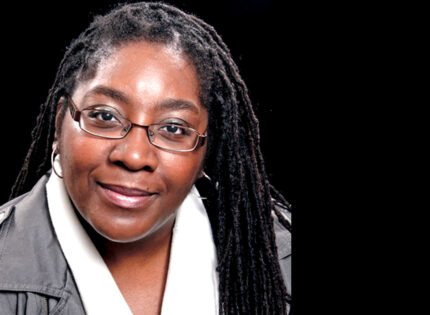
The month of February comes right after January, bringing a rush of advertisements heralding Black History Month. All I can do is simply amalgamate nuances with gratitude that such a month still exists, along with society’s attempts to make the ruling majority feel better under the simulacrum of doing justice for those not in power.
Is the utility of the celebration embedded in the fact that Black History is not being taught and that trumpeting it, even for the shortest month of the year, is the best alternative?
The observance belittles Black history, and although it has served as a good starting point, it is an exercise in sheer futility to reduce any particular group’s history to one month of motivational speeches.
In fact, some academics have humorously dubbed the observance “BLACK HYSTERICAL MONTH” due to the mad rush to get speakers to appear in so many venues. We need more history during more of the year, and we need to think critically about the role that race has played in Canadian history.
For any degree of utility and progress to be made, people need to keep it real with each other.
Historian Carter G. Woodson did not expect the celebration of Black History Month to last forever. He thought that as a result of bringing attention to Black peoples’ contributions publishers would eventually realize that they were missing a great piece and rewrite history to include the contributions of Blacks, especially African Americans.
Without Black History Month, would Blacks be thinking of their history at all?
That Canadians do not include the contributions of Blacks under the umbrella of “Canadian History” implies that those contributions do not count as Canadian history. Few Canadians are aware of the many sacrifices made in wartime by Black soldiers as far back as the Battle of Queenston Heights in 1812.
As a people with roots dating back to 1603, African Canadians have defended, cleared, built and farmed this country. Yes, they have had a significant hand in shaping the past, present and future of this nation.
For far too long, White Canadians have always believed that Canada does not have the same sort of outright racism as the United States; they boast about how American slaves once tried to escape to freedom by making their way to Canada, conveniently forgetting that Canada once had slaves too.
We try to tell ourselves that right-wing populists are more of an issue in the U.S. than here, but fail to remember that the Klu Klux Klan operated throughout Canada in the 1920s and 1930s, with the same racial ideology as their U.S. counterparts.
We shake a finger at the U.S. over Rosa Parks being denied a seat on a bus, but fail to teach our children about Viola Desmond’s similar stand at a Nova Scotia movie theatre, and only brought her story to the fore after it was announced that she was going to be on the Canadian $10 bill. From being a virtual unknown and unforgotten, she became the first woman to appear alone on a Canadian bank note.
Additionally, racial profiling by police continues to be a problem across Canada. Despite some progress on the issue, such as the Toronto police chief acknowledging that racial profiling and racism exist within the force and Sylvain Caron, head of the Service de Police de la Ville de Montréal, after expressed astonishment regarding the existence of racism within the ranks, pledged to work towards a solution, while black Canadians continue to be more likely to have interactions with police, most of which are ultimately fatal.
Has the celebration of Black History month become some type of recompense for slavery? I do not believe that the accomplishments of Blacks can be summed up in one month, let alone
28 days, or 29 every four years. If this is what we must do to feel good about the past, then something is wrong and needs to be remedied.
Some have complained that Black History Month is racist because you should not have one month dedicated to one race. It is racist, racist-based on the fact that centuries later people fail to look pass skin color to give people the respect they deserve.
While an annual celebration of Black History Month may serve the purpose of making others, especially the mainstream culture, aware of the contributions, its utility is somewhat diminished, as it puts our accomplishments in little boxes as opposed to an overall part of the curriculum.
When the contributions of people of African descent are acknowledged, when the achievements of Black people are known, when Black people are routinely included or affirmed through our curriculum, our books and in the media, and treated with dignity in all of Canada’s provinces and territories, there will no longer be a need for Black History Month.
Black history will then, and only then, be Canadian history, thereby putting paid in perpetuity.












